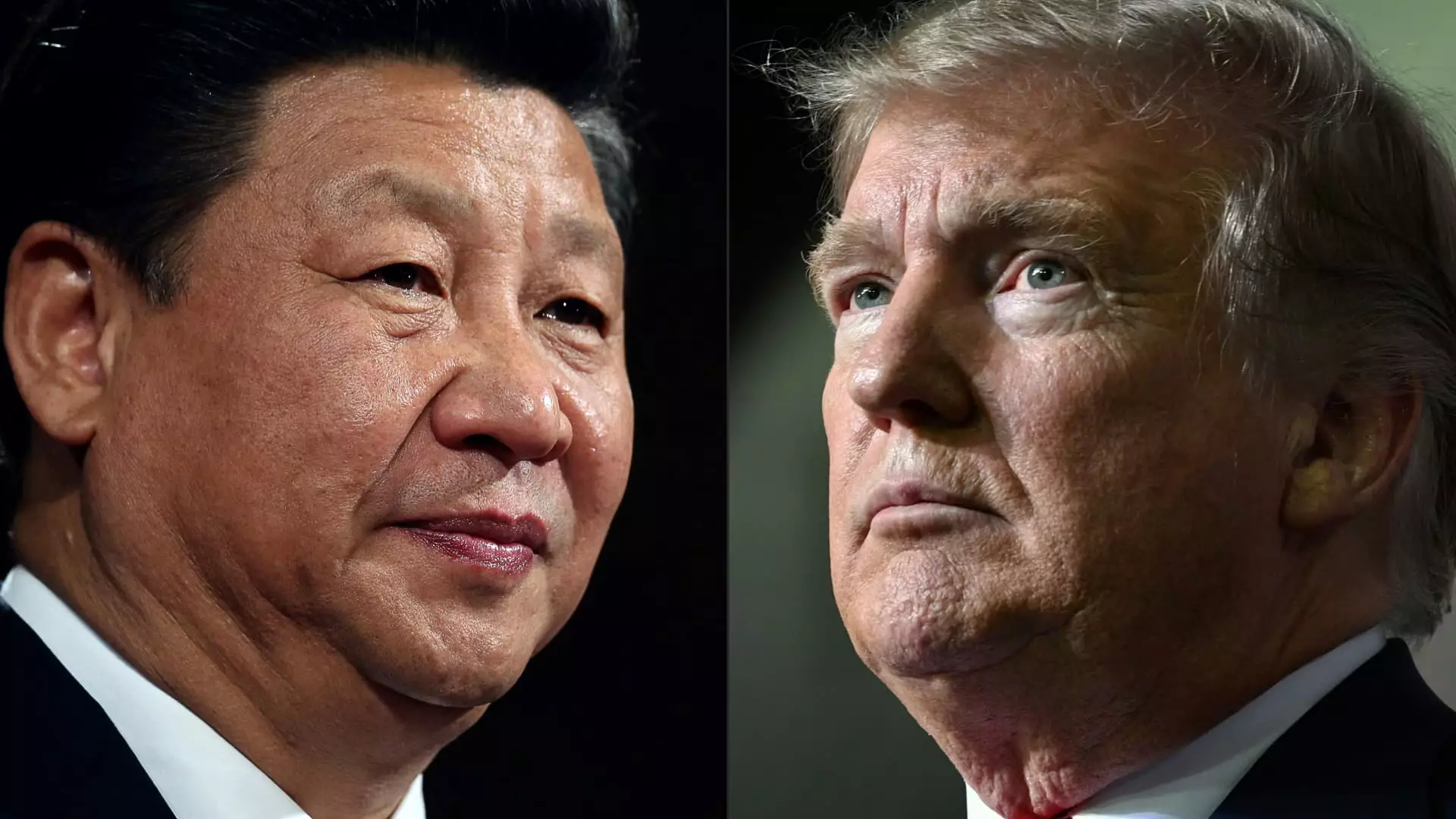In a recent statement aboard Air Force One, President Donald Trump expressed optimism about the potential visit of Chinese President Xi Jinping to the United States. While he refrained from providing a specific timeline for this meeting, the implications of such a visit resonate deeply within the context of ongoing U.S.-China relations. The prospect of renewed dialogue signifies an opportunity to address simmering tensions that have characterized interactions between the two global superpowers.
The conversation between Xi and Trump could be instrumental in redefining the contours of bilateral trade agreements. As Trump noted, “it’s possible” to forge a new trade deal—a sentiment that acknowledges the intricate web of economic interdependencies. The dialogue between these leaders might be essential not only in negotiating trade tariffs but also in laying down a foundation for future cooperation.
The history of U.S.-China relations has been marked by a series of high-stakes negotiations and significant turning points. The last time Xi Jinping visited the U.S. was in November 2023 when he met with then-President Joe Biden. That summit yielded critical agreements aimed at resuming military communications and addressing the production of fentanyl. However, these conversations often come tangled with multiple complex issues, including trade, cybersecurity, and human rights.
Despite these challenges, the prospect of face-to-face dialogue holds a certain promise. It is during these personal interactions that leaders can engage in candid discussions about contentious issues, paving the way for more meaningful resolutions. Trump has indicated that his discussions with Xi will extend to relevant topics such as the popular social media app TikTok, owned by Chinese parent company ByteDance. The negotiations concerning TikTok’s U.S. operations underline the broader technological and economic competition between the two nations.
Moreover, the dialogue between the United States and China could reverberate beyond just trade issues to encompass more significant global challenges. For instance, Trump’s comments about engaging with Russia regarding the Ukraine conflict signify an understanding that diplomacy is essential not just within bilateral contexts but also on a broader geopolitical scale. The precarious nature of international relations underscores the importance of such dialogues in curbing conflicts and fostering cooperation.
However, it is crucial to note that both nations face underlying issues that require navigation. These include human rights concerns, differing stances on Taiwan, and broader regional security dynamics. The past has shown that U.S.-China relations can be fraught with misunderstandings and escalations, making effective communication imperative.
The anticipated discussions between President Trump and President Xi represent more than just the possibility of a trade agreement; they symbolize the opportunity for a new chapter in U.S.-China relations. The complexities embedded in their agendas require careful navigation, but the potential for transformative outcomes rests on their ability to engage constructively. As both nations face an ever-changing global landscape, fostering open dialogue and strategic partnerships could serve as a cornerstone for achieving stability and mutual benefit.



Leave a Reply